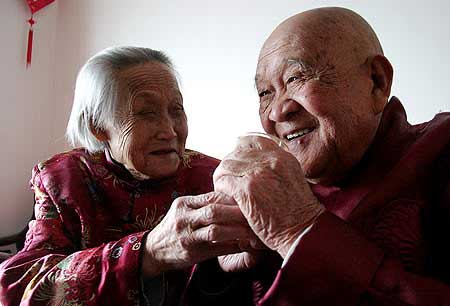Nursing home scarce for China's elderly
- By Zhang Ming'ai
 0 Comment(s)
0 Comment(s) Print
Print E-mail China.org.cn, March 28, 2012
E-mail China.org.cn, March 28, 2012
In Beijing, the 12th Five-Year Plan sets a target of 90 percent of the elderly receiving care at home through improved social services by 2020; 6 percent will stay with the community centers supported by the government; and 4 percent will stay with the nursing homes.
For now, however, applying for a bed in a nursing home in the densely populated metropolis is proving extremely difficult, especially for people like Zhang and Li who do not wish to move far from their children, familiar communities and trusted hospitals.
According to Beijing Civil Affairs Bureau, by the end of 2011 the country's capital had a total number of 401 nursing homes, including 215 public nursing homes and 186 private nursing homes. Only 2.9 beds were available for every 100 elderly people.
Zhang and Li visited several public nursing homes, all of which turned them down for the same reason: No bed was available.
According to a Beijing News report on March 20, Beijing No. 1 Social Welfare House currently has 1,100 beds and more than 7,000 elderly people on the waiting list. "A new applicant now has to wait for at least 10 years," the report said.
Other public nursing homes are also full and hundreds are on their waiting lists. Some refuse to accept elderly people who cannot take care of themselves. "Those who can take care of themselves are waiting to be accepted, there is no need to look for trouble," a working staff with a public nursing home said. A few even interview the applicants and ask them to live on a trial basis. Those who are not qualified would be persuaded to leave.






